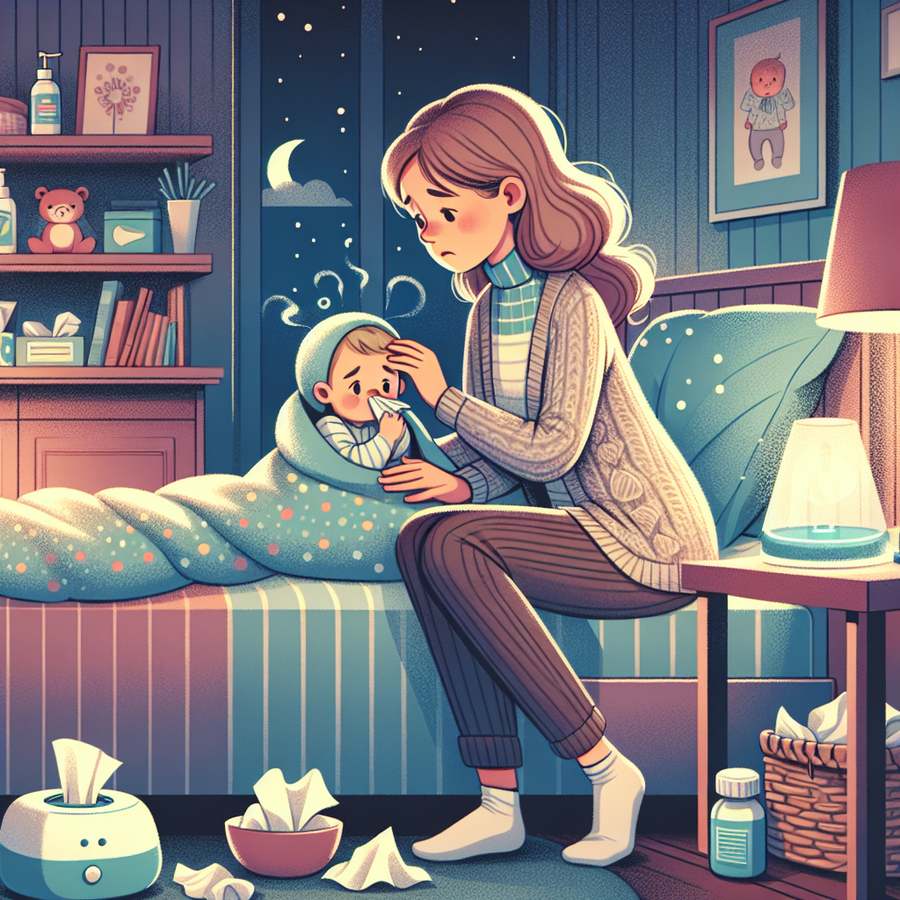One of the most challenging times for new parents is trying to manage their baby’s sleep when they have a cold. The discomfort and congestion can disrupt sleep for both babies and their parents, making those nights seem endless. In this article, we will explore effective Tips for managing sleep when baby has a cold, designed to help your little one rest easier and recover quicker. From setting up the right sleep environment to understanding when to seek medical advice, these strategies will guide you through those tough nights.
Understanding Your Baby’s Cold and Sleep Needs
Before diving into the tips, it’s crucial to understand how a cold affects your baby’s sleep. Congestion, coughing, and general discomfort can significantly alter their usual sleep patterns, leading to more frequent wake-ups and shorter sleep durations. By recognizing these changes, you can better prepare to address them and ensure your baby gets the rest they need to fight off the cold.
It’s also important to monitor your baby’s symptoms and know when to consult a healthcare provider. While most colds in babies are not serious and will resolve on their own, certain signs may indicate a more severe condition. Keeping an eye out for symptoms such as high fever, difficulty breathing, or refusal to eat or drink can help you act promptly if your baby’s condition worsens.
Tips for managing sleep when baby has a cold
Creating a comfortable sleeping environment is critical when your baby has a cold. Adjusting the room’s humidity level can help alleviate congestion. Using a cool-mist humidifier can add moisture to the air, making it easier for your baby to breathe. However, it’s important to regularly clean the humidifier to prevent mold growth. Additionally, maintaining an ideal room temperature for baby sleep in winter can ensure your baby stays comfortable and doesn’t overheat or get too cold during the night.
Another key strategy is to slightly elevate your baby’s head while they sleep. This can be done by placing a towel or a thin pillow under the mattress to create a gentle incline, which helps reduce nasal congestion. Remember, it’s crucial to keep the crib free of loose bedding, pillows, and toys to ensure a safe sleep environment.
Soothing Techniques to Comfort Your Baby
Comforting your baby is just as important as addressing physical symptoms. Gentle, soothing techniques can help ease your baby’s discomfort and promote better sleep. Techniques for soothing a baby to sleep through the night can be particularly helpful. These might include gentle rocking, singing lullabies, or using white noise machines to create a calming environment.
For babies struggling with severe congestion, a warm bath before bedtime can also be beneficial. The steam from the bath can help loosen mucus, making it easier for your baby to breathe. After the bath, applying a baby-safe chest rub (consult your pediatrician first) can further help in clearing congestion.
When to Seek Medical Advice
While most colds in babies are mild and manageable at home, there are times when consulting a healthcare provider is necessary. If your baby shows signs of difficulty breathing, has a persistent high fever, or is significantly less active than usual, it’s important to seek medical advice. Additionally, if your baby is under three months old and has a cold, it’s advisable to consult your pediatrician, as younger infants are at a higher risk of complications.
Managing your baby’s sleep when they have a cold can be challenging, but with the right strategies and a bit of patience, you can help your little one get through those tough nights. Remember, every baby is different, so what works for one may not work for another. It’s important to try different techniques and find what best soothes and comforts your baby. For more detailed information on managing cold symptoms and improving your baby’s sleep, consider consulting resources like the CDC’s guidelines on colds.













